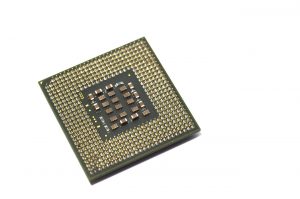Mesoblast Ltd. Advances in Stem Cell Therapy for Inflammatory and Cardiovascular Diseases

Mesoblast Ltd., a Melbourne-based biopharmaceutical company, is steadily gaining attention for its groundbreaking work in adult stem cell research. Founded by Silviu Itescu in 2004, the company focuses on developing and commercializing therapies using its proprietary mesenchymal lineage stem cell technology. These treatments aim to address a range of serious health conditions, including cardiovascular issues, spine and orthopedic diseases, cancer-related complications, and immune system disorders.
Over the years, Mesoblast has built a strong reputation in the biotech industry by concentrating on regenerative medicine. Its stem cell-based therapies are designed to repair and regenerate damaged tissues, offering potential solutions for conditions that are often difficult to treat with conventional medications. The company’s approach is centered around mesenchymal precursor cells (MPCs), which are adult stem cells known for their ability to reduce inflammation and assist in tissue repair.
One of Mesoblast’s major areas of focus is inflammatory disease, where chronic inflammation causes long-term damage to organs and tissues. The company is developing therapies that aim to reduce this inflammation and prevent further complications. Among its most prominent clinical trials is the treatment of acute graft-versus-host disease (GVHD), a life-threatening condition that can occur after bone marrow transplants. Mesoblast’s leading therapy for GVHD, based on MPCs, has shown promise in reducing symptoms and improving survival rates, especially in children.
In addition to inflammatory diseases, the company is also working on treatments for cardiovascular conditions. Heart failure, which affects millions worldwide, is another key target. Mesoblast’s stem cell therapy is designed to strengthen heart function and reduce hospitalization rates in patients with chronic heart failure. Early trial results have been encouraging, with signs of improved heart function and reduced inflammatory markers.
Orthopedic disorders also fall under the company’s pipeline. Conditions like chronic back pain, often related to degenerative disc disease, are being targeted through regenerative therapies. The company hopes that its stem cell treatments can provide long-term relief by regenerating spinal discs and reducing inflammation, avoiding the need for invasive surgeries.
In oncology and hematology, Mesoblast is exploring how its cell therapies can support cancer patients, particularly those undergoing aggressive treatments like chemotherapy or radiation. The goal is to enhance immune recovery and protect the body from treatment-related damage.
Mesoblast’s therapies are not yet available to the general public, as they are still undergoing regulatory reviews and clinical trials in various countries. However, the company continues to partner with international health authorities and research institutions to bring its products to market. It is currently involved in several late-stage trials, and regulatory decisions in the United States and other key markets are expected to influence its future direction.
The company’s stock has shown fluctuations, reflecting investor interest and the uncertain path of clinical approvals. On the most recent trading day, shares of Mesoblast Ltd. ADR closed at $14.99, showing a rise of 4.17% or $0.60. Such changes often follow updates from clinical trials or announcements regarding regulatory progress.
Despite the challenges typically faced by biotech firms — such as lengthy approval processes, high research costs, and scientific uncertainties — Mesoblast remains committed to advancing its technology. Its ongoing studies and product pipeline suggest that it is positioning itself as a leader in stem cell-based therapies.
As global healthcare systems look for innovative ways to manage chronic illnesses and improve patient outcomes, companies like Mesoblast play a crucial role. With continued progress in clinical trials and regulatory milestones, the company could help reshape how diseases linked to inflammation, heart failure, and immune dysfunctions are treated in the future.





